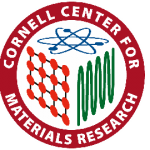WHY CORNELL?
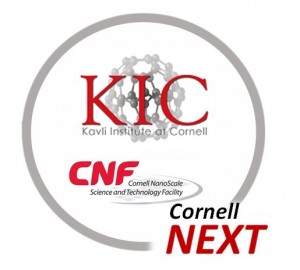 Cornell University is a world leader in NanoScience. Our high-impact research community is supported by cutting-edge centers and institutions across campus.
Cornell University is a world leader in NanoScience. Our high-impact research community is supported by cutting-edge centers and institutions across campus.
The Kavli Institute for Nanoscale Science at Cornell (KIC)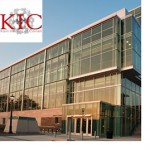 is devoted to the development and utilization of next-generation tools for exploring the nanoscale world. KIC creates new techniques to image and dynamically control nanoscale systems and uses these techniques to push the frontiers of nanoscale science. KIC’s measurement-oriented mission complements existing strengths at Cornell in nanofabrication, supporting our faculty and researchers by providing an annual cycle of instrumentation project awards, competitive postdoctoral fellowships, and engineering graduate fellowship programs.
is devoted to the development and utilization of next-generation tools for exploring the nanoscale world. KIC creates new techniques to image and dynamically control nanoscale systems and uses these techniques to push the frontiers of nanoscale science. KIC’s measurement-oriented mission complements existing strengths at Cornell in nanofabrication, supporting our faculty and researchers by providing an annual cycle of instrumentation project awards, competitive postdoctoral fellowships, and engineering graduate fellowship programs.
Cornell Nanoscale Science and Technology Facility
CNF is a national user 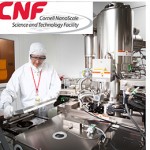 facility that supports a broad range of nanoscale science and technology projects by providing state-of-the-art resources coupled with expert staff support. 2015 marks our 38th year in operation. Research at CNF encompasses physical sciences, engineering, and life sciences, and has a strong inter-disciplinary emphasis. Over 800 users per year (50% of whom come from outside of Cornell) use the fabrication, synthesis, computation, characterization, and integration resources of CNF to build structures, devices, and systems from atomic to complex length scales.
facility that supports a broad range of nanoscale science and technology projects by providing state-of-the-art resources coupled with expert staff support. 2015 marks our 38th year in operation. Research at CNF encompasses physical sciences, engineering, and life sciences, and has a strong inter-disciplinary emphasis. Over 800 users per year (50% of whom come from outside of Cornell) use the fabrication, synthesis, computation, characterization, and integration resources of CNF to build structures, devices, and systems from atomic to complex length scales.
Cornell Center for Materials Research
The CCMR shared facilities offers world-class materials characterization and processing equipment overseen by expert instrument managers. The CCMR currently supports three Interdisciplinary Research Groups (IRGs) and a number of smaller ‘seed’ research groups through an NSF MRSEC grant and Cornell University support. Each group brings researchers from a variety of different departments together to work on an outstanding interdisciplinary problem in materials research and development.
The mission of the Cornell University Biotechnology Resource Center (BRC) is to catalyze and promote research in the life sciences. The BRC provides advanced technologies, services, training and education to the university community and to outside investigators, operating in both fee-for-service and collaborative modes. The BRC’s core facilities include genomics, genomic diversity, proteomics and mass spectrometry, imaging, bioinformatics, bio-IT (information technology), and advanced technology assessment. With a concentration of advanced instrumentation, expertise in their applications, and an extensive network of academic, federal, not-for-profit enterprises and commercial partners, the BRC is a dynamic hub for life sciences research at Cornell.
Cornell High Energy Synchrotron Source (CHESS)
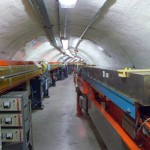
CHESS is a high-intensity X-ray source supported by the National Science Foundation which provides our users state-of-the-art synchrotron radiation facilities for research in Physics, Chemistry, Biology, and Environmental and Materials Sciences. A special NIH Research Resource, called MacCHESS, supports special facilities for protein crystallographic studies.
Center for Nanomaterials, Engineering and Technology (CNET)

The Center for Nanomaterials Engineering & Technology is an established interdisciplinary research center, now open to the public. The center’s strengths lie in supporting innovative research, wide ranging applications as well as accelerating the development of technologies.
The Center for Nanomaterials Engineering & Technology houses the premier tools, instruments and equipment for nanoscale materials synthesis, research and development.
Cornell University is home to over 150 centers, institutes, laboratories, and programs. These interdisciplinary research organizations bring faculty, students, industry, government, and communities together to help meet national and global needs through research and outreach. The Kavli Institute at Cornell, The Cornell Nanoscale Science and Technology Facility, the Center for Materials Research, the Biotechnology Resource Center, the Cornell High Energy Synchrotron Source and teh Center for Nanomaterials, Engineering and Technology will offer cutting-edge infrastructure and support to the NEXT Initiative.

